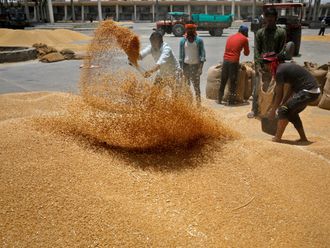Mumbai/Lahore: The only building in Kahuta, Pakistan, that could withstand attackers in 1947 was the gurdwara. Most of the surrounding villages were predominantly Sikh, with a small percentage of Hindus, and over 300 non-Muslims had been burnt by rioters there. “Poor souls,” Colonel Jaspal Singh Bakshi, 87, says. “Those that were powerful could withstand the onslaught for two to three days but most villages fell. Many women jumped into the village well to avoid falling into the hands of enemies.”
The colonel’s story evokes chilling emotions of the terrifying outbreak of violence that erupted amid one of the greatest migrations in human history; a story that saw refugees being uprooted from the only homeland they knew.
“In my village, where there were no wells, the men decided to kill the women to prevent them from becoming a prey to attackers,” Bakshi says. “But after two women were killed, another said ‘don’t kill us, let us all go out and fight’.” And when they did, the attackers retreated.
How newspapers reported the birth of two nations
Bakshi now lives in Navi Mumbai but remembers well all the violence. “Nations can forget but we cannot forget.”
“Our Muslim village head tricked Sikhs into taking refuge in the gurdwara, but a huge mob attacked [it] with petrol bombs — 1,500 Sikhs were roasted alive. The positive part was not a single Muslim from our village took part.”
A third tale is of betrayal by a good friend of his, Mohammad Aslam. The friendship had been maintained and flourished over decades. “We would meet every day. One day, when I was at his place, about six people came and started abusing and beating me. My friend, too, did the same. Beaten badly, I was thrown out, and it was a Muslim ‘tongawala’ who took me to the military hospital, where I spent 15 days.”
The incident shattered him forever.
“Born in Mumbai, I was only six when my father, an officer of the Great Indian Peninsula Railway, like all Muslim government servants, decided to migrate to Pakistan. As a child, my mother told us ours was the last train that could travel safely ... I was very fortunate we did not suffer like many others.”
“I was only 22 when my husband and I, fearing an attack by a Hindu mob, left our home in Bihar and travelled on foot and by boats to cross the border. It was horrible. I still remember those big frogs in the water.
“I was shocked and shaken for years as I had to leave my only beloved brother, who is still in India.
“Thanks to my children who arranged my three visits to India during 1976-2001, I was able to see him and relatives on a short-term visa. When I reached my birthplace, everyone — Muslims, Hindus, even a Christian — came to see me. Some of them kissed my hands. I wish I could also serve them in Pakistan in a similar way. Unfortunately after 2002 the short-term visa became so difficult that none of our relatives could afford to sponsor me.”
“Every day we would hear news of villages being burnt, complete families being butchered,” he said. Overcoming many hurdles, the family managed to reach Lahore safely. Today, he is living a contented life in Rawalpindi. “Someday, I wish to visit my family house in Bogra and also the graves of my mother and relatives.”
“What shocked my parents was that at least two of their best friends were leading the killer mobs. But another Sikh family friend helped them to cross the border on a cow-pulled cart.











